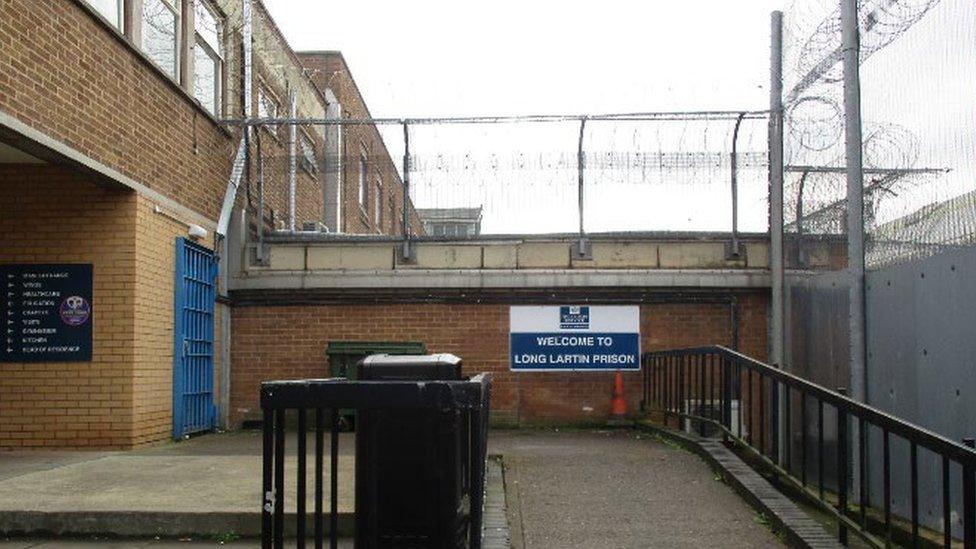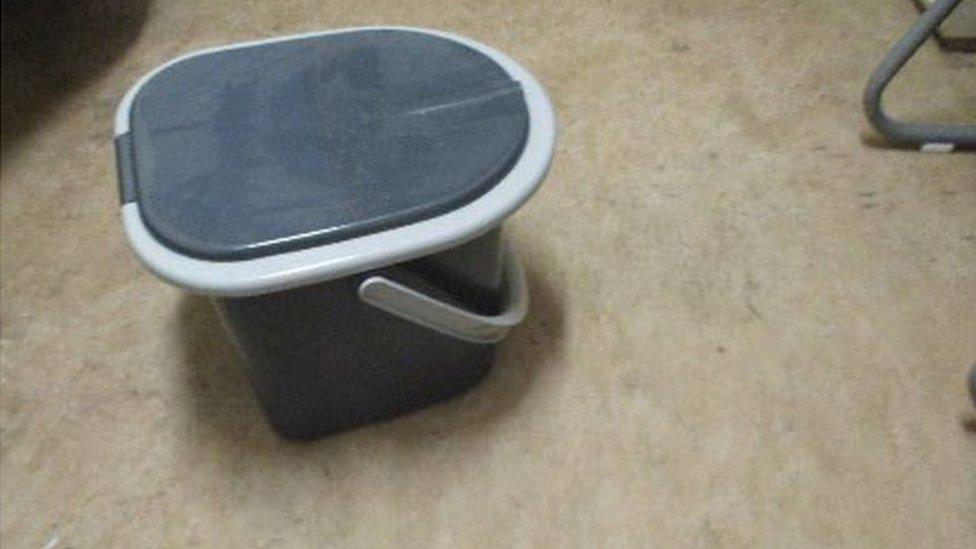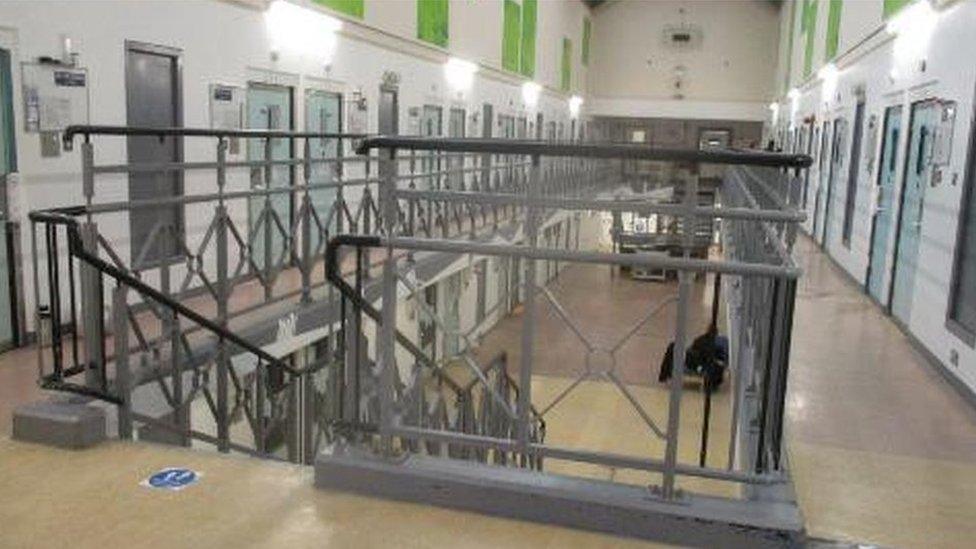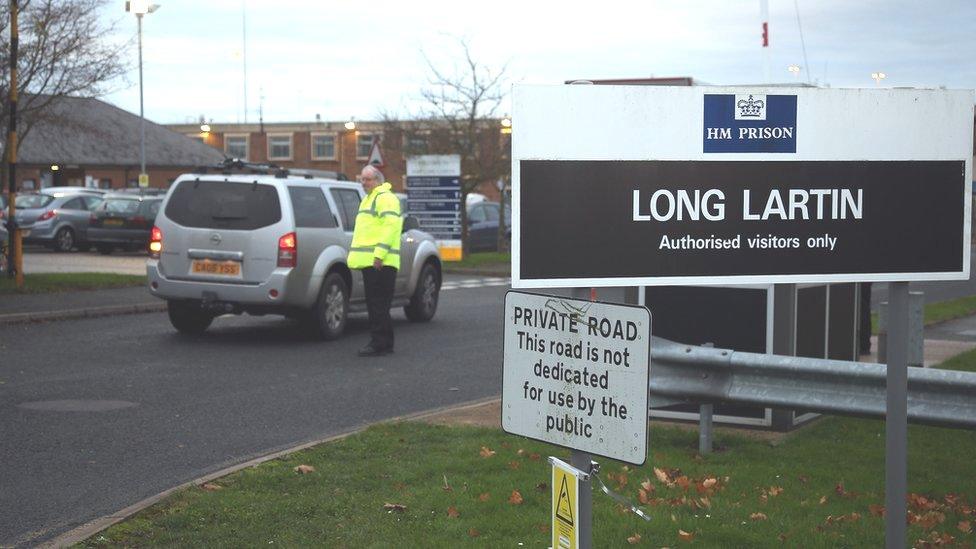Long Lartin inmates living in squalid conditions - report
- Published

The chief inspector of prisons said Long Lartin had lost its way
A high security prison has been told to make urgent improvements after assaults on staff remained high and inmates were found living in squalid conditions.
The report into Long Lartin in Worcestershire also said the number of inmates self-harming had increased since the last inspection in 2018.
An unannounced inspection by HM Inspectorate of Prisons took place between 5 and 16 December 2022.
A Ministry of Justice spokesperson said "robust action" was now taking place.
Charlie Taylor, Chief Inspector of Prisons, said while the prison's first priority must be to protect the public by keeping inmates securely within prison walls, the prison had lost its way.

Night sanitation buckets used by inmates would often be tipped out of the window
Long Lartin, in Evesham, holds up to 514 adult men, many being some of the most serious offenders in the country.
The visit found rodent infested cells with inmates having to use buckets as toilets, which were then emptied out of the windows because it was taking too long for them to be removed.
Fifteen key concerns were identified, with inspectors saying six should be treated as a priority.
These include:
The level of self-harm had doubled since the last inspection and was the highest among comparable prisons, but there was no plan to reduce it
Levels of violence were too high, especially against staff
The prison's infrastructure was in very poor condition with many cells having no toilet or running water
Prisoners spent too much time locked up
Provision of education, training and work was insufficient.
Other findings included:
A high level of illicit drug use
Too few key work sessions were being delivered, limiting staff-prisoner relationships and sentence progression
Not enough done to address perceived disproportionate treatment among those from ethnic and religious minorities or to cater for the prison's large number of disabled prisoners
The health care inpatient unit and the end-of-life cell were not suitable.
Leaders and managers of the prison have now been asked to make a plan which sets out how and when the concerns raised will be resolved.
The Ministry of Justice said extra staff had now been deployed and new body-worn cameras introduced, which together had "led to a 125% increase in the number of prisoners engaged in work and education and cut attacks against staff by 15%".

Rats were found inside the prison

Follow BBC West Midlands on Facebook, external, Twitter, external and Instagram, external. Send your story ideas to: newsonline.westmidlands@bbc.co.uk, external
Related topics
- Published16 June 2022

- Published24 September 2019

- Published30 September 2018
